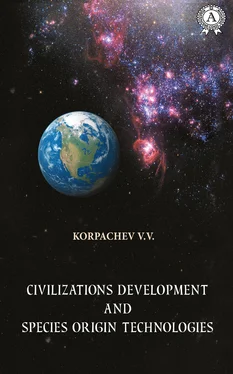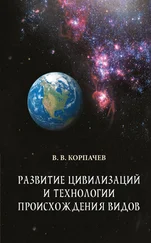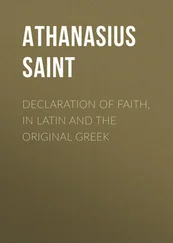His breath turned into wind and clouds, his voice became thunder, his left eye became the sun, and his right one became the Moon. Earth was formed from the Pangu’s body. His arms, legs and torso turned into 4 cardinal points and 5 main mountains, and the sweat on his body turned into rain. Blood flowed through the land in rivers; muscles became the soil, hair turned into grass and trees. His teeth and bones formed simple stones and metals, while his brain formed pearls and precious stones. And the worms on his body turned into people. According to the ancient Greeks’ views, initially there was only Chaos, and the first 6 primordial gods, the ancestors of everything, appeared from it. As in the Egyptian mythology, the Greek gods also personified some forces and elements: Chronos – time, Gaia (Gaea, Ga) – Earth, Eros – Love, Tartarus – the abyss, Erebus (Erebos) – darkness Nyx – night. Later, the first primordial gods children, and then every generation of their descendants have filled the world with new and significant phenomena. Thus, the Nyx’s children introduced the world of light (God Aethir) and day (Goddess Hemera), and the children of Gaia (Gaea, Ga) became the personification of heaven (Uranus) and the sea (Pontus) and so on. There is also the known number of gods who had nothing to do with the world creation; they just governed the world and natural forces. Finally, gods gave rise to Titans who were later precipitated to the Tartarus bowels during the war.
According to the Judaism provisions, the foundations of which are set forth in the Talmud, the first day saw 10 creations: heaven and Earth, confusion and emptiness, light and darkness, spirit and water, the day and night properties.
The Christianity’s central dogma of creation is the «Creation out of Nothing» (Creatio ex Nihilo), when God, with his free will, transforms everything from a non-being state to a state of being. This faith found its first expression in the first three chapters of the first book of the Bible − the Genesis book. All people are created by two definite persons − Adam and Eve. God provided the created angels and man with freedom that was used by them for evil (Genesis 3: 1−6).
As for Catholicism, the first chapters of Genesis are not treated as a literal description of the creation process, but as an allegory. Traditional Lutherans also do not accept the first chapter of Genesis in its literary sense. Some Orthodox theologians instruct to interpret the term «day» as some very long stage of the Universe creation. Jehovah’s Witnesses also point out that the word «day» does not means a day only, but it often means an indefinite period of time. At the same time, in case of modern Protestantism fundamentalist currents and in Orthodoxy, theologians insist on a literal understanding of the first chapters of the Genesis book: the creation of the world within six days.
As for Islam, the creation of the world is described in other way than in the Bible. The Qur’an does not reject the idea of a weekly holiday, which is Friday in Islam. In Islam, contrary to the Bible, it is considered sacrilege to attribute the property of fatigue to the Almighty God, who rested on the seventh day from the work that He spent on the creation of the world. The Bible treats the Sun and the Moon as two luminaries − for controlling the day and controlling the night, the Koran distinguishes them by the use of different epithets: light (nur) – to determine the Moon and torch (siraj) – to determine the Sun.
Hinduism provides at least 3 versions of the world occurrence: from the «cosmic egg», from the «primordial heat» or from parts of the body of the original man. The Rig-Veda (Rigveda) mentions a certain cosmic intercourse.
Buddhist cosmology claims that there is an alternation of the cycles of the Universe emergence and destruction. The Buddhist religion does not have the concept of creating the world by the highest non-material being as God is. The emergence of each new Universe is due to the action of the aggregate karma of living beings of the previous world cycle. Similarly, the cause of the Universe destruction, which has ended its period of existence, is the accumulated bad karma of living beings. Each world cycle is divided into 4 stages: 1) emptiness (from the destruction of one world till the beginning of the formation of other one); 2) the world formation; 3) a stable state period; 4) the world destruction (coagulation, extinction). Each of these stages (kalp) consists of twenty periods of increase and decrease.
Buddhism provides no answer to the questions related to the beginning of world cycles, its end or infinity. The God Brahma appears to be the first creature in the new Universe, who is considered the Creator of the world in Hinduism. As for Buddhism, he is not a Creator but the first divine creature to be worshiped. As any other creatures, he is not immutable and is the subject to the karma cause and effect (consequence) law.
According to the Zoroastrianism universe concept, the world has been existing for 12 thousand years. Its entire history is conditionally divided into 4 periods; each of them lasts for 3 thousand years. The prototypes of everything later created on Earth had already existed in the first Divine Creation period. God creates the sky, planets as well as the first man and first ox during the second period. The first man gives birth to a man and a woman who generate mankind while the first ox generates all the animals. The clash of opposing elements sets the world to motion: water acquires fluidity; mountains arise, celestial bodies run.
In accordance with the Taoism concept, the Universe’s creation is the result of two main forms of energy processes’ occurrence out of nothing: Yin and Yan. Their combinations and interaction generate the «Chi» energy and everything existing in the world as the result.
Realizing the religious doctrines’ insolvency, the attempts to improve them have been made. Thus, Deism, the religious and philosophical trend, acknowledges the God’s existence and the Divine Creation, but disclaims most of supernatural and mystic phenomena, the Divine Revelation and religious dogmatism. Lord Herbert Cherbury is the founder of it. Most of deists believe that God does not interfere in the events taking place in the world after He has created it. They state that intelligence, logics and nature observation are the only means to the God and His Will’s perception. Deism seeks to harmonize science and the idea of the God’s existence, and not to oppose them. The deism followers believe that the scriptures, judging by modern standards, are quite controversial and disputable. They are just the result of a human thought, not the God’s words, and therefore it is impossible to base a worldview on their basis. Traditional religions excessively speculate on the promises of posthumous blisses and threats of hellish torment, which is the way to keep their flock, depriving it of freedom of thought and religion.
Another religious trend is Ietsisme. Its followers believe that, on the one hand, there is something between Heaven and Earth, but, on the other hand, they do not perceive and do not support the established system of beliefs, dogmas and existing explanations of the God’s nature by any particular religion.
Agnosticism doubts the truth or possibility of either proving or refuting the existence of God. According to one point of view, the term «agnostic» can also be used to describe those who believe that the question of the God’s existence can be resolved, but considers the arguments presented in favour of the God’s existence or non-existence of to be unconvincing and insufficient for the firm conclusion.
Ignosticism, or igtheism, is a point of view on theology, according to which the problem of the God’s existence is considered insoluble, since there is no evidence that the theist creature discussed by theologians and philosophers, is intelligible. Igtheists are neither atheists nor agnostics. While atheists do not believe in the God’s existence and agnostics do not know whether God exists or not, igtheists do not understand what is meant when one says that God exists.
Читать дальше












